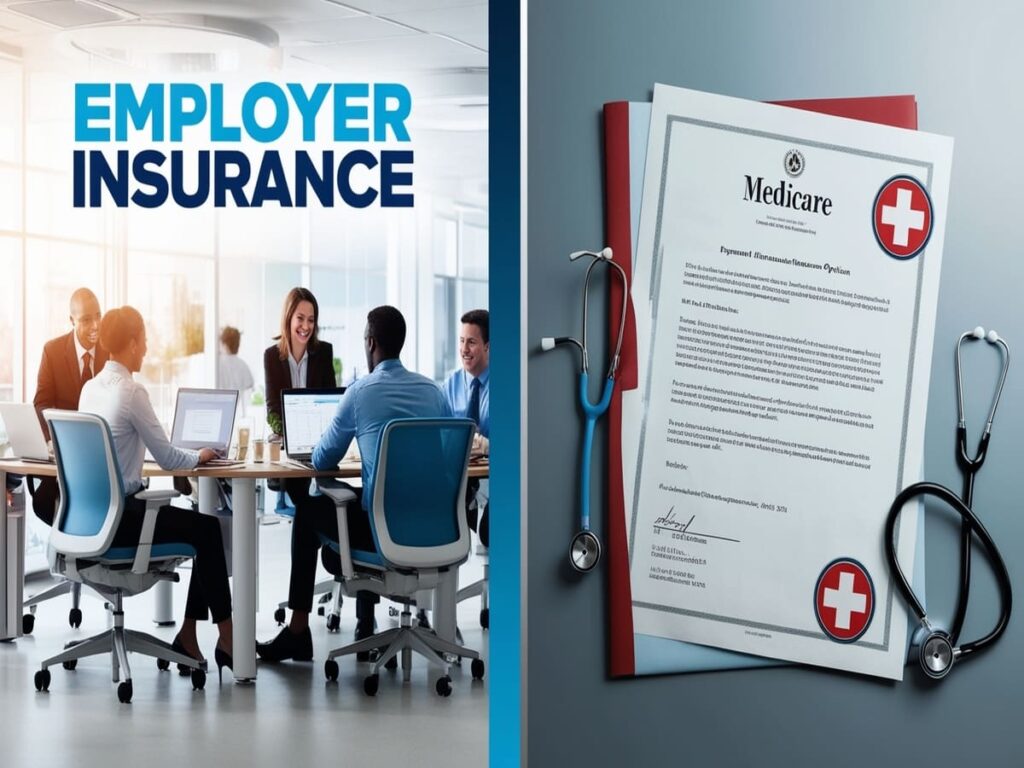As retirement approaches and you near age 65, one of the most important Medicare questions is this: Can I delay enrolling in Medicare if I have employer insurance?
The answer is: Yes, under the right circumstances. But the details matter — a lot. Making the wrong move could result in penalties, delayed coverage, or unexpected costs. This article breaks down everything you need to know to make a smart, penalty-free decision.
Understanding Your Initial Medicare Enrollment Window
When you turn 65, you become eligible for Medicare. Your Initial Enrollment Period (IEP) is a 7-month window that starts three months before your 65th birthday, includes your birthday month, and continues for three months after.
Unless you have qualified employer coverage, failing to enroll in Medicare during this window could result in lifetime penalties and coverage delays.

Can You Delay Medicare If You’re Still Working?
Yes, you can delay Medicare Part B (medical insurance) and Part D (prescription drug coverage) if:
- You (or your spouse) are actively working past age 65, and
- You’re covered by a creditable employer-sponsored health plan
Creditable coverage means your employer health plan is at least as good as Medicare’s coverage.
Employer Size: The Key Factor
Whether you can delay Medicare without penalty depends heavily on the size of your employer:
✅ Employers with 20+ Employees:
- Your employer insurance is primary, and Medicare is secondary
- You can safely delay Medicare Part B and Part D
- When you retire or lose coverage, you’ll get a Special Enrollment Period (SEP) to sign up penalty-free
❌ Employers with Fewer Than 20 Employees:
- Medicare becomes your primary insurance
- Your employer plan becomes secondary
- You should enroll in Medicare Part A and B to avoid coverage gaps and penalties
Should You Enroll in Medicare Part A?
Most people qualify for premium-free Part A, which covers hospital care. Enrolling at 65, even if you’re still working, usually makes sense.
However, if you have a Health Savings Account (HSA) and wish to keep contributing, you should delay enrolling in Part A — enrolling in any part of Medicare makes you ineligible to contribute to an HSA.
What Is a Special Enrollment Period (SEP)?
If you delay Medicare due to employer coverage, you’ll qualify for a Special Enrollment Period when your coverage ends. The SEP allows you to:
- Enroll in Part B without penalty
- Enroll in Part D or a Medicare Advantage Plan
- The SEP lasts 8 months from the end of your employer coverage or employment, whichever comes first
What Happens If You Miss the SEP?
If you don’t enroll during the SEP, you’ll have to wait until the General Enrollment Period (January 1 – March 31). Coverage won’t start until July 1, and you’ll face:
- Part B late enrollment penalties: 10% for every 12 months you were eligible but didn’t enroll
- Part D late penalties: 1% of the national average premium for every month you went without creditable drug coverage
These penalties are permanent and added to your monthly premium.
Real-World Examples
✅ Lisa (66, still working)
- Covered by employer insurance through a company with 50 employees
- Chooses to delay Medicare Part B and Part D
- Retires at 67, enrolls during SEP with no penalty
❌ Tom (67, working for small business)
- Employer has 12 employees — Medicare should be primary
- Didn’t enroll in Part B, assumes employer insurance is enough
- Learns he’s not covered, and faces a 20% lifetime penalty when he finally signs up
Quick Checklist: Should You Delay?
| Question | Yes | No |
|---|---|---|
| Still working? | ✅ | ❌ |
| Employer has 20+ employees? | ✅ | ❌ |
| Employer coverage is creditable? | ✅ | ❌ |
| Contributing to an HSA? | ✅ (Delay Part A) | ❌ |
If you answered Yes to all, you may safely delay Medicare. If not, consider enrolling at 65.
Final Takeaways
- You can delay Medicare if you’re working and covered by a large employer’s creditable health plan
- You’ll qualify for a Special Enrollment Period when you retire or lose coverage
- Failing to follow the rules can lead to permanent penalties and coverage gaps
- Always confirm with your HR department whether your coverage is creditable
For more detailed guidance, visit Medicare.gov or contact a licensed Medicare advisor.
Need expert help navigating Medicare while working? Get free counseling from your local SHIP office or consult a licensed Medicare insurance agent today.




